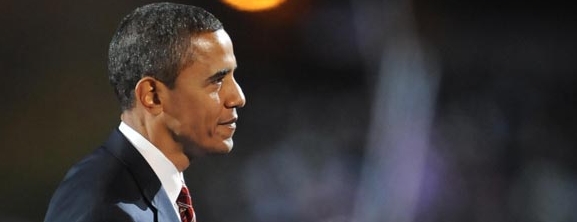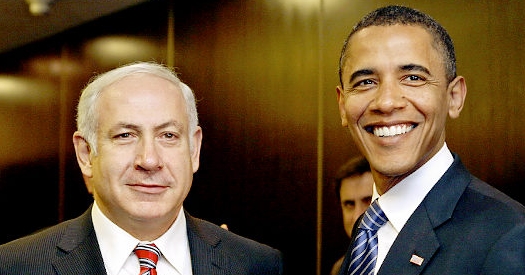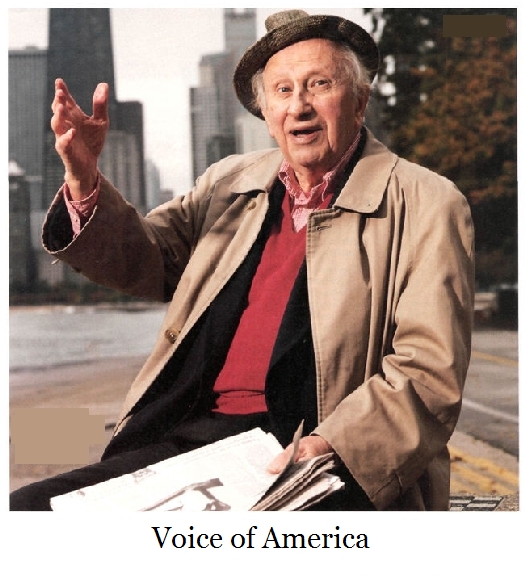Obama to explore new approach in Afghanistan war
The incoming Obama administration plans to explore a more regional strategy to the war in Afghanistan — including possible talks with Iran — and looks favorably on the nascent dialogue between the Afghan government and “reconcilable” elements of the Taliban, according to Obama national security advisers.
President-elect Barack Obama also intends to renew the U.S. commitment to the hunt for Osama bin Laden, a priority the president-elect believes President Bush has played down after years of failing to apprehend the al-Qaeda leader. Critical of Bush during the campaign for what he said was the president’s extreme focus on Iraq at the expense of Afghanistan, Obama also intends to move ahead with a planned deployment of thousands of additional U.S. troops there.
The emerging broad strokes of Obama’s approach are likely to be welcomed by a number of senior U.S. military officials who advocate a more aggressive and creative course for the deteriorating conflict. Taliban attacks and U.S. casualties this year are the highest since the war began in 2001. [continued…]
Editor’s Comment — The one phrase in this report that is encouraging is “regional strategy.” As for the rest, it simply demonstrates that campaign rhetoric provides a lousy foundation for crafting a policy that may never lend itself to populist language.
There’s a simplistic logic to the idea that if Iraq was a “distraction” and resulted in military forces being pulled out of Afghanistan too quickly, then the corrective is to pull troops out of Iraq and send them back to Afghanistan. The problem is that for as long as there are Western troops propping up a weak government in Kabul, that government will naturally be perceived as a puppet regime — especially when it can do so little to prevent those forces from killing civilians. Moreover, when it comes to a contest over which side can drive the other to exhaustion, the home side always has an inherent advantage. In addition to that they are now able to claim that America’s economic decline is the product of its military misadventures. In every respect, the Taliban is now in the strongest position it has been since 2001. No wonder there is little sign that they are eager to sit down and negotiate.
What the Obama administration needs to do is look east and west with the goal of creating a coalition between Iran, Pakistan and India. An indispensable step in that process would be a US-brokered resolution to the conflict in Kashmir — and prior to that every effort to make sure that the Pakistani economy does not collapse.
If an alliance can be forged between these three regional powers, then they rather than Nato, could serve as much more durable protectors for a gradually strengthening Afghan government.
If Osama bin Laden is alive — and that’s a big if — the goal of hunting him down is not one that’s worth trumpeting. If he can be caught — all well and good. But to imagine that the fact that he has not be found so far is the result of the Bush administration’s lack of focus, seems — at least to me — to be a bit naive.
POSTSCRIPT: What might be a more constructive policy regarding bin Laden would be — so long as their is no hard intelligence indicating otherwise — to publicly declare the al Qaeda chief is “presumed dead.”
If he is dead, the US government should not be assisting al Qaeda by perpetuating the myth that he has outsmarted the Americans. And since proving that someone is dead is much harder than proving that they are alive, the onus should be on al Qaeda to prove that they are not hiding an inconvenient truth.
Presuming that bin Laden is dead does nothing to diminish the importance of shutting down al Qaeda. What it most likely does is undercut the propaganda value of allowing him to be seen as having successfully eluded capture.
Absent an authentic video in which OSB has something to say about Barack Obama winning the election, I for one think it’s safe to assume (as does former CIA operative Robert Baer) that America’s number one nemesis is gone for good.
On the other hand, if presuming him dead becomes the official position of the US government yet the presumption is wrong, it might still serve the useful purpose of forcing him into public view.
Obama leans toward asking Gates to remain at Pentagon for a year
President-elect Barack Obama is leaning toward asking Defense Secretary Robert Gates to remain in his position for at least a year, according to two Obama advisers. A senior Pentagon official said Mr. Gates would likely accept the offer if it is made.
No final decision has been made, and Obama aides said other people are also under serious consideration for the defense post, one of the most highly coveted in any new cabinet. Several prominent Democrats, including former Clinton Navy Secretary Richard Danzig and former Clinton Deputy Secretary of Defense John Hamre, are also being considered. [continued…]
Editor’s Comment — Keep Gates for a year and then replace him with someone willing to ruthlessly slash the Pentagon’s budget beginning by scrapping the missile defense program and suspending upgrades to nuclear weapons.
Can we save the planet and rescue the economy at the same time?
These are times in the history of our nation when our very way of life depends upon dispelling illusions and awakening to the challenge of a present danger. In such moments, we are called upon to move quickly and boldly to shake off complacency, throw aside old habits, and rise, clear-eyed and alert, to the necessity of big changes. Those who, for whatever reason, refuse to do their part must either be persuaded to join the effort or asked to step aside. This is such a moment. The survival of the United States as we know it is at risk. And even more—if more should be required—the future of human civilization is at stake.
Our economy is in terrible shape and getting worse. Gasoline prices have been increasing. Jobs are being outsourced. Home mortgages are in trouble. Banks, automobile companies, and other institutions we depend upon are under growing pressure. The war in Iraq continues, and now the war in Afghanistan appears to be getting worse.
Meanwhile, the climate crisis is growing more dire—much faster than predicted. Scientists with access to data from Navy submarines traversing beneath the north polar ice cap have warned that there is now a good chance that within five years it will completely disappear during the summer months. And by the way, our weather sure is getting strange, isn’t it?
Yet when we look at these seemingly intractable challenges, we can see the common thread running through them. Our dangerous overreliance on carbon-based fuels is at the core of all of these challenges—the economic, environmental, and national security crises. We’re borrowing money from China to buy oil from the Persian Gulf to burn it in ways that destroy the planet. Every bit of that’s got to change. [continued…]
Bush spy revelations anticipated when Obama is sworn in
When Barack Obama takes the oath of office on January 20, Americans won’t just get a new president; they might finally learn the full extent of George W. Bush’s warrantless domestic wiretapping.
Since The New York Times first revealed in 2005 that the NSA was eavesdropping on citizens’ overseas phone calls and e-mail, few additional details about the massive “Terrorist Surveillance Program” have emerged. That’s because the Bush administration has stonewalled, misled and denied documents to Congress, and subpoenaed the phone records of the investigative reporters.
Now privacy advocates are hopeful that President Obama will be more forthcoming with information. But for the quickest and most honest account of Bush’s illegal policies, they say don’t look to the incoming president. Watch instead for the hidden army of would-be whistle-blowers who’ve been waiting for Inauguration Day to open the spigot on the truth. [continued…]
Fed defies transparency aim in refusal to disclose
The Federal Reserve is refusing to identify the recipients of almost $2 trillion of emergency loans from American taxpayers or the troubled assets the central bank is accepting as collateral.
Fed Chairman Ben S. Bernanke and Treasury Secretary Henry Paulson said in September they would comply with congressional demands for transparency in a $700 billion bailout of the banking system. Two months later, as the Fed lends far more than that in separate rescue programs that didn’t require approval by Congress, Americans have no idea where their money is going or what securities the banks are pledging in return.
“The collateral is not being adequately disclosed, and that’s a big problem,” said Dan Fuss, vice chairman of Boston- based Loomis Sayles & Co., where he co-manages $17 billion in bonds. “In a liquid market, this wouldn’t matter, but we’re not. The market is very nervous and very thin.”
Bloomberg News has requested details of the Fed lending under the U.S. Freedom of Information Act and filed a federal lawsuit Nov. 7 seeking to force disclosure. [continued…]
Kremlin opts for charm over strong arm on missile defence
Russia switched deftly from threats to charm yesterday in an effort to exploit indications that Barack Obama could be persuaded to scrap Bush administration plans to deploy a missile defence shield in Poland and the Czech Republic.
Speaking after meeting the US secretary of state, Condoleezza Rice, in Sharm el-Sheikh, the Russian foreign minister, Sergey Lavrov said Moscow was expecting a more flexible approach from the US once Obama took office.
“We have paid attention to the positions that Barack Obama has published on his site. They inspire hope that we can examine these questions in a more constructive way,” the RIA Novosti news agency quoted Lavrov as saying.
Although consultations with the Bush administration on missile defence and the renewal of the 1991 Strategic Arms Reduction Treaty would continue, Lavrov suggested new agreements were unlikely until after Obama entered the White House. [continued…]
Obama planning US trials for Guantanamo detainees
President-elect Obama’s advisers are quietly crafting a proposal to ship dozens, if not hundreds, of imprisoned terrorism suspects to the United States to face criminal trials, a plan that would make good on his promise to close the Guantanamo Bay prison but could require creation of a controversial new system of justice.
During his campaign, Obama described Guantanamo as a “sad chapter in American history” and has said generally that the U.S. legal system is equipped to handle the detainees. But he has offered few details on what he planned to do once the facility is closed.
Under plans being put together in Obama’s camp, some detainees would be released and many others would be prosecuted in U.S. criminal courts. [continued…]
Dear President-elect Obama,
Nothing would make me prouder than to see you act on your first day in office to restore America’s moral leadership in the world.
With one stroke of your pen, you can close Guantánamo Bay prison, shut down military commissions, and ban torture.
The restoration of American freedom is in your hands. Give us back the America we believe in. [continued…]

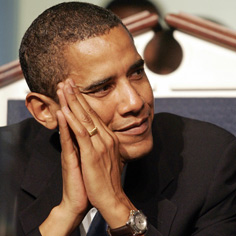 Pssst! Did you hear? Obama’s not a secret Muslim — he’s a Buddhist.
Pssst! Did you hear? Obama’s not a secret Muslim — he’s a Buddhist.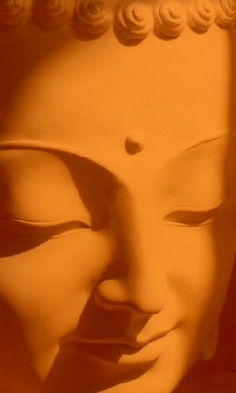 How is it that at the end of one of the longest of political campaigns, after a relentless struggle during which attacks rained down like showers of arrows and then finally at a moment that marks a turning point not only in the history of this nation but for the whole world — how is it that such a moment could be met with the equanimity that Barack Obama displayed on the night of November 4, 2008?
How is it that at the end of one of the longest of political campaigns, after a relentless struggle during which attacks rained down like showers of arrows and then finally at a moment that marks a turning point not only in the history of this nation but for the whole world — how is it that such a moment could be met with the equanimity that Barack Obama displayed on the night of November 4, 2008?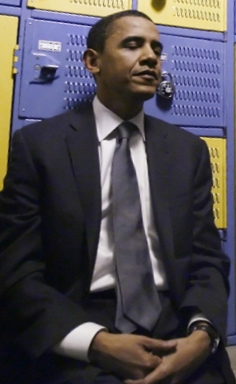 The fact that Obamamania has produced supporters who seem more like devotees is a phenomenon which understandably raised concerns among many observers during the campaign. At the same time it provided another window into Obama’s character.
The fact that Obamamania has produced supporters who seem more like devotees is a phenomenon which understandably raised concerns among many observers during the campaign. At the same time it provided another window into Obama’s character.